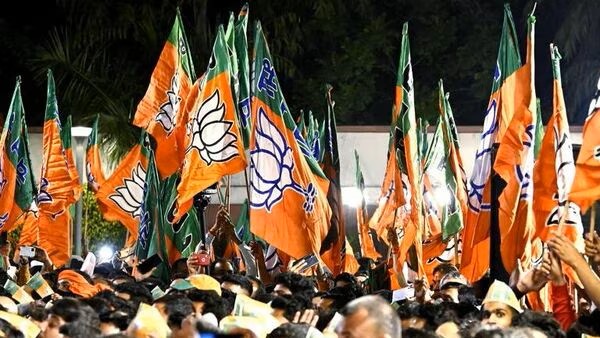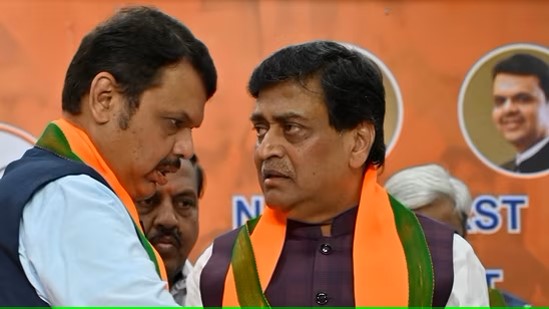Ashok Chavan’s dramatic switch from the Congress to the BJP has resonated through Maharashtra’s political landscape, triggering tremors that threaten to reshape the power dynamics within the state and beyond. While interpretations vary, one thing is certain: this event has transcended the realm of individual decisions and entered the broader narrative of political volatility, ideological battles, and the ever-evolving quest for power in India’s most politically diverse state.
 On the surface, the Congress attempts to portray a picture of stoicism. Nana Patole’s dismissive pronouncements and emphasis on the Maha Vikas Aghadi’s strength project an image of unwavering unity. However, beneath this facade lies a hint of unease. Chavan’s defection marks another high-profile departure, coming on the heels of similar moves by other prominent figures. This string of exits raises questions about the Congress’s internal cohesion and its ability to retain key members, especially in the face of perceived greener pastures offered by the BJP.
On the surface, the Congress attempts to portray a picture of stoicism. Nana Patole’s dismissive pronouncements and emphasis on the Maha Vikas Aghadi’s strength project an image of unwavering unity. However, beneath this facade lies a hint of unease. Chavan’s defection marks another high-profile departure, coming on the heels of similar moves by other prominent figures. This string of exits raises questions about the Congress’s internal cohesion and its ability to retain key members, especially in the face of perceived greener pastures offered by the BJP.
Patole’s veiled accusations regarding the Adarsh scam and the timing of Chavan’s move suggest attempts to deflect attention and paint his exit as driven by personal motives rather than ideological differences. While this strategy might temporarily dampen the immediate impact, it does little to address the underlying concerns about the party’s ability to connect with voters and offer a compelling alternative to the BJP’s narrative.
For the BJP, Chavan’s arrival carries both promise and peril. On the one hand, it presents a valuable opportunity to exploit potential fissures within Congress and project an image of growing support. Chavan’s name recognition and experience, though tarnished by the Adarsh scam, could potentially sway some voters, particularly those disenchanted with the Congress.
However, integrating Chavan is not without its risks. His association with the Congress and recent electoral losses might create internal resistance within the BJP, especially from established leaders who perceive him as a threat to their positions. Additionally, the Adarsh scam baggage could potentially backfire, tarnishing the BJP’s image and alienating voters who prioritize clean governance.
Chavan’s defection, while significant, cannot be viewed in isolation. It reflects a deeper malaise within Maharashtra’s political landscape, characterized by rampant defections, shifting alliances, and a focus on short-term gains over long-term ideological commitments. This political instability weakens public trust in institutions and makes it difficult for parties to formulate and implement coherent policies that address the state’s pressing challenges.
The long-term implications of Chavan’s move remain shrouded in uncertainty. Will it significantly impact the upcoming Lok Sabha elections, tipping the scales in favour of one party or another? Will it trigger a domino effect, leading to further defections and realignments? These questions hang heavy in the air, leaving observers and stakeholders alike on the edge of their seats.
One thing is certain, however: Chavan’s departure has served as a stark reminder of the fluidity and fragility of Maharashtra’s political landscape. As the state and the nation gear up for crucial elections, the coming months will be a test of each party’s ability to navigate these complexities, address systemic issues, and ultimately earn the trust of the electorate. The future of Maharashtra, and potentially the broader Indian political spectrum, hinges on the outcome of this ongoing political chess game.




